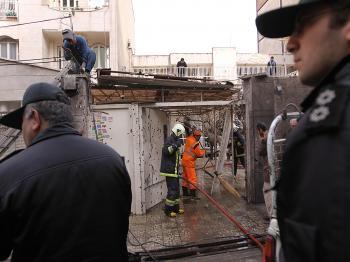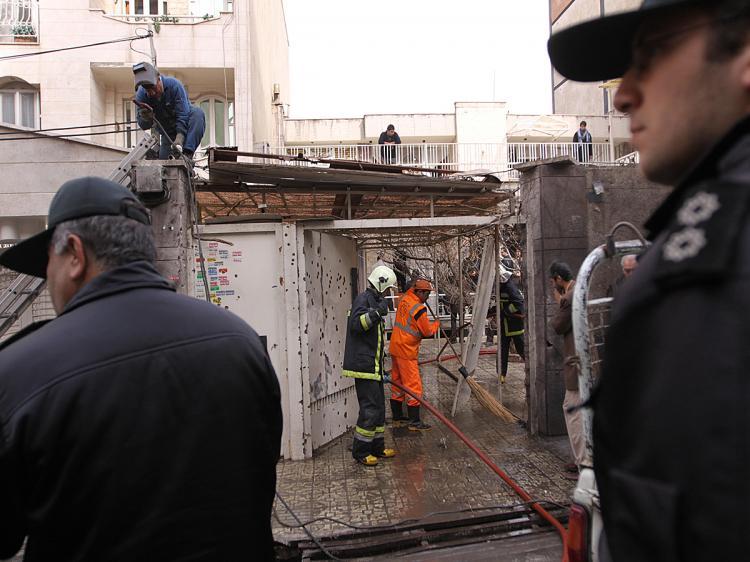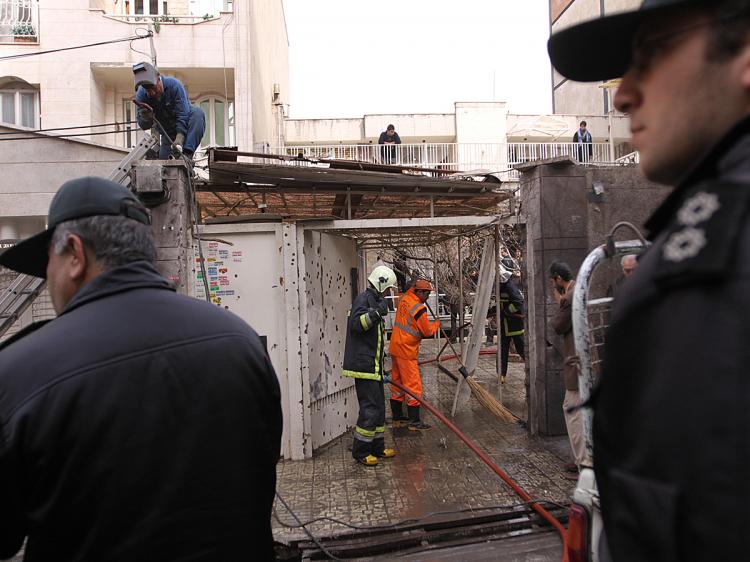Iran accused the United States and Israel secret services of being behind an assassination in Tehran on Tuesday. The accusation, which came through official Iranian state media sources, said the CIA and Mossad were likely behind the murder of Massoud Ali Mohammadi, a Tehran University professor. State media reports said he died after a bomb attached to a motorcycle was triggered by remote control and exploded outside his home in the neighborhood of Qeytariyeh, in Northern Tehran.
Israel did not respond to the accusation and the United States flatly denied it.
“The charge that the United States had anything to do with a murder in Tehran today is absurd,” said U.S. State Department spokesman Gordon Duguid on Tuesday.
The accusation came at a sensitive time for Iran, painting them in a defensive light ahead of a U.N. Security Council meeting scheduled for Saturday in New York. The exact agenda has not been set yet, but pushing Iran to adhere to international obligations regarding its nuclear program will be a focal point of the discussions.
Specific measures that could be discussed would include sanctions.
The United States has repeatedly emphasized a two-track solution of engagement and pressure in dealing with Iran.
“We will continue to look at both tracks, and seriously look at both tracks, in order to better target not only whatever sanctions might be effective but also to look at those other incentives,” said Mr. Durguid during the press briefing.
The United States plans to discuss available options during the meeting in New York on Saturday with the aim of reaching a conclusion.
Iran’s mission at the United Nations could not be reached for comment.
“We are going to continue to look for a satisfactory resolution to getting our goals met as far as Iran’s nuclear program is concerned,” said Mr. Durguid.
During a trip of the Asia-Pacific that included a stop in Honolulu, Hawaii, U.S. Secretary of State Hillary Clinton emphasized the pressure part of the track with Iran in comments to reporters.
“It is clear that there is a relatively small group of decision makers inside Iran,” Secretary Clinton told reporters, according to the Associated Press. “They are in both political and commercial relationships, and if we can create a sanctions track that targets those who actually make the decisions, we think that is a smarter way to do sanctions.”
Saturday’s meeting will include the five permanent members of the U.N. Security Council, Britain, China, France, Russia, and the United States, as well as Germany.
Israel did not respond to the accusation and the United States flatly denied it.
“The charge that the United States had anything to do with a murder in Tehran today is absurd,” said U.S. State Department spokesman Gordon Duguid on Tuesday.
The accusation came at a sensitive time for Iran, painting them in a defensive light ahead of a U.N. Security Council meeting scheduled for Saturday in New York. The exact agenda has not been set yet, but pushing Iran to adhere to international obligations regarding its nuclear program will be a focal point of the discussions.
Specific measures that could be discussed would include sanctions.
The United States has repeatedly emphasized a two-track solution of engagement and pressure in dealing with Iran.
“We will continue to look at both tracks, and seriously look at both tracks, in order to better target not only whatever sanctions might be effective but also to look at those other incentives,” said Mr. Durguid during the press briefing.
The United States plans to discuss available options during the meeting in New York on Saturday with the aim of reaching a conclusion.
Iran’s mission at the United Nations could not be reached for comment.
“We are going to continue to look for a satisfactory resolution to getting our goals met as far as Iran’s nuclear program is concerned,” said Mr. Durguid.
During a trip of the Asia-Pacific that included a stop in Honolulu, Hawaii, U.S. Secretary of State Hillary Clinton emphasized the pressure part of the track with Iran in comments to reporters.
“It is clear that there is a relatively small group of decision makers inside Iran,” Secretary Clinton told reporters, according to the Associated Press. “They are in both political and commercial relationships, and if we can create a sanctions track that targets those who actually make the decisions, we think that is a smarter way to do sanctions.”
Saturday’s meeting will include the five permanent members of the U.N. Security Council, Britain, China, France, Russia, and the United States, as well as Germany.






